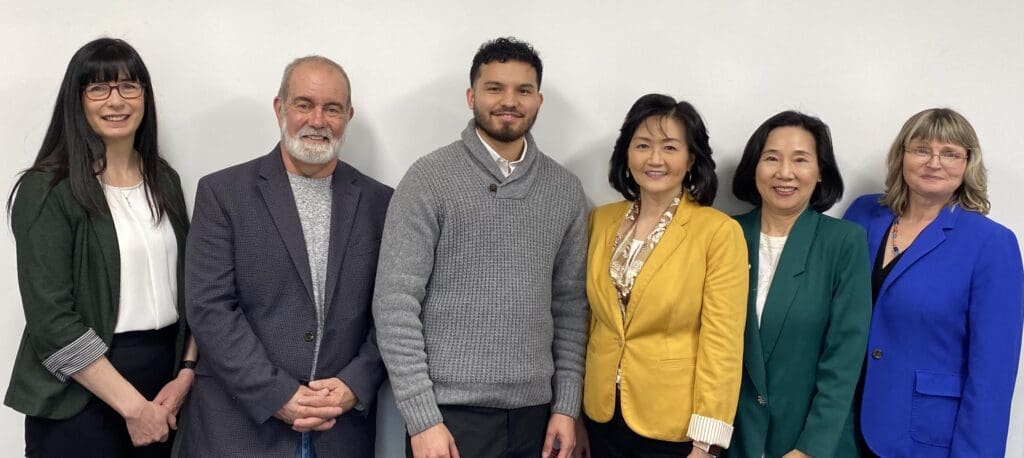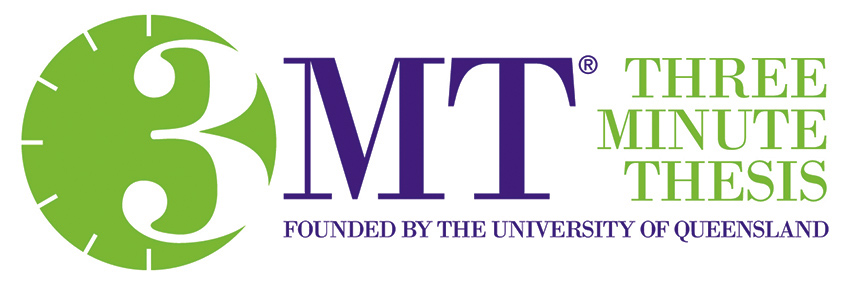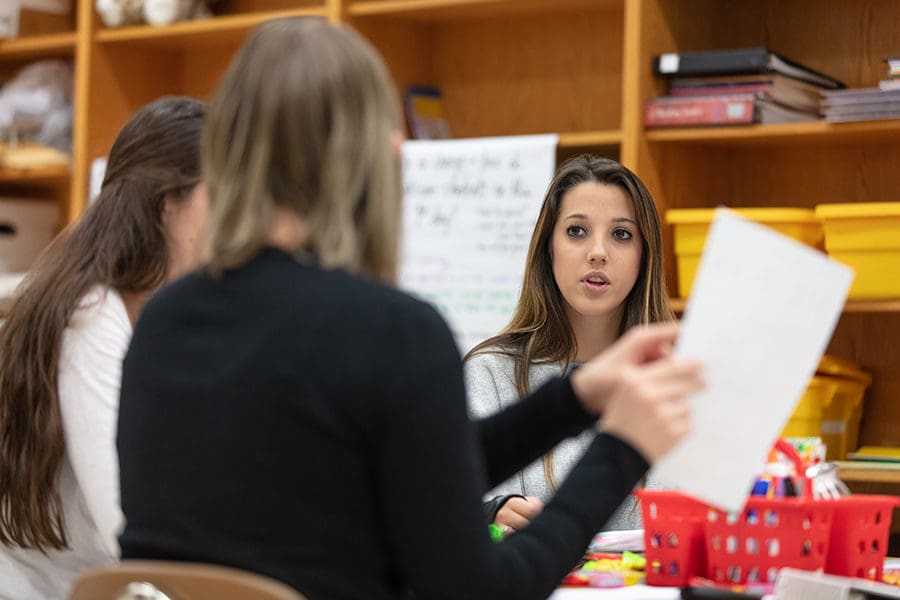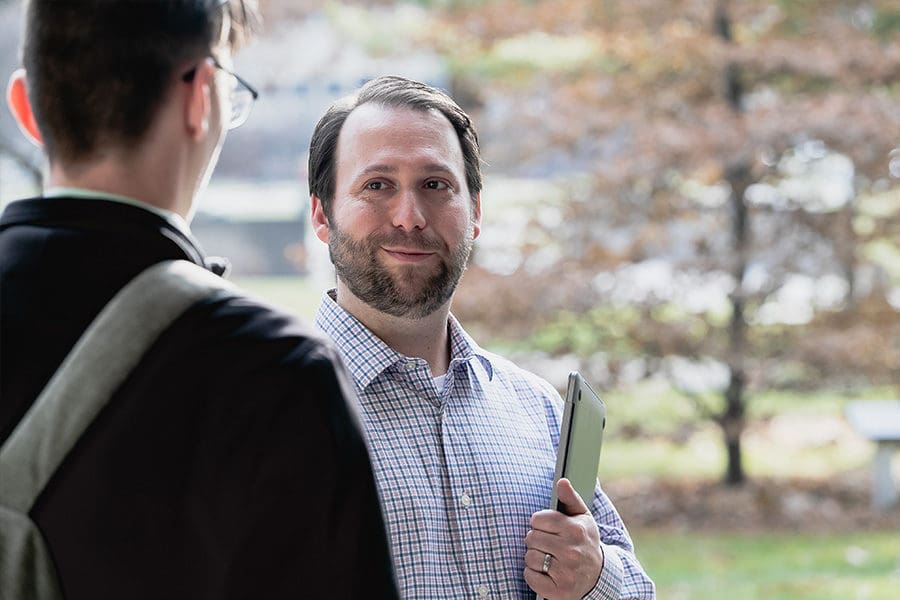Three-Minute Thesis
A competition developed by The University of Queensland, Three Minute Thesis develops academic, presentation and research-communication skills, helping students to effectively explain their research to a non-specialist audience.
Congratulations to Our Winners!
We are pleased to announce this year’s Three-Minute Thesis competition winners. Thanks to everyone who participated in this year’s competition
Undergraduate

Congrats to Mateo Garcia (center) for earning second place in the undergraduate category for PNW’s 2022 Three-Minute Thesis competition. From left to right: workshop presenter Erin Protsman, judge Tony Sindone, Garcia, judge Carin Chuang, judge Jean Jiang and Director of Graduate Studies Joy Colwell.
Winner
- Kevin Davis (not pictured)
Runner Up
- Mateo Garcia
Judges
- Shawn He
- Jean Jiang
- Songtao Mo
- Wendy St. Jean
- Tony Sindone
- Jon Swarts
Graduate

Congrats to Chukwenudum Uzor (center right) and Maeve Cucolotto (center left) for earning first and second place respectively in the graduate category for PNW’s 2022 Three-Minute Thesis competition. From left to right: workshop presenter Erin Protsman, judge Tony Sindone, Cuculotto, Uzor, judge Carin Chuang, judge Jean Jiang and Director of Graduate Studies Joy Colwell.
Winner (Tie)
- Chukwenudum Uzor
- Congshan Mao (not pictured)
Runner Up
- Maeve Cuculotto
Judges
- Shawn He
- Jean Jiang
- Songtao Mo
- Wendy St. Jean
- Tony Sindone
- Jon Swarts

Who’s Eligible?
Currently active senior undergraduate students and graduate students are eligible to participate in 3MT®. Graduate and undergraduates present in separate rounds. Work presented must have been conducted at PNW and should be in the final stages so you have some sound conclusions and impacts from your research.
Capstone projects are accepted for competition. These projects must include a level of research and scholarship. Previous graduates are not eligible.
About The 3MT
Three Minute Thesis (3MT®) is a research communication competition developed by The University of Queensland (UC), Australia. The competition develops academic, presentation, and research communication skills and supports the development of students’ capacities to effectively explain their research in language appropriate to an intelligent but non-specialist audience.
3MT® is a fast-paced competition presented in only three minutes with only one slide. It is not an exercise in trivializing or “dumbing down” research, but challenges students to consolidate their ideas and research discoveries. During each competition, participants will have three minutes to present a compelling discussion on their research topic, including its significance and relevance, to the general public.
Rules and Guidelines

Competition Rules
Explore eligibility from judging criteria, see how the 3MT® competition operates.

Participant Guidelines
Competing in 3MT®? See our pointers, from writing to creating your slide!